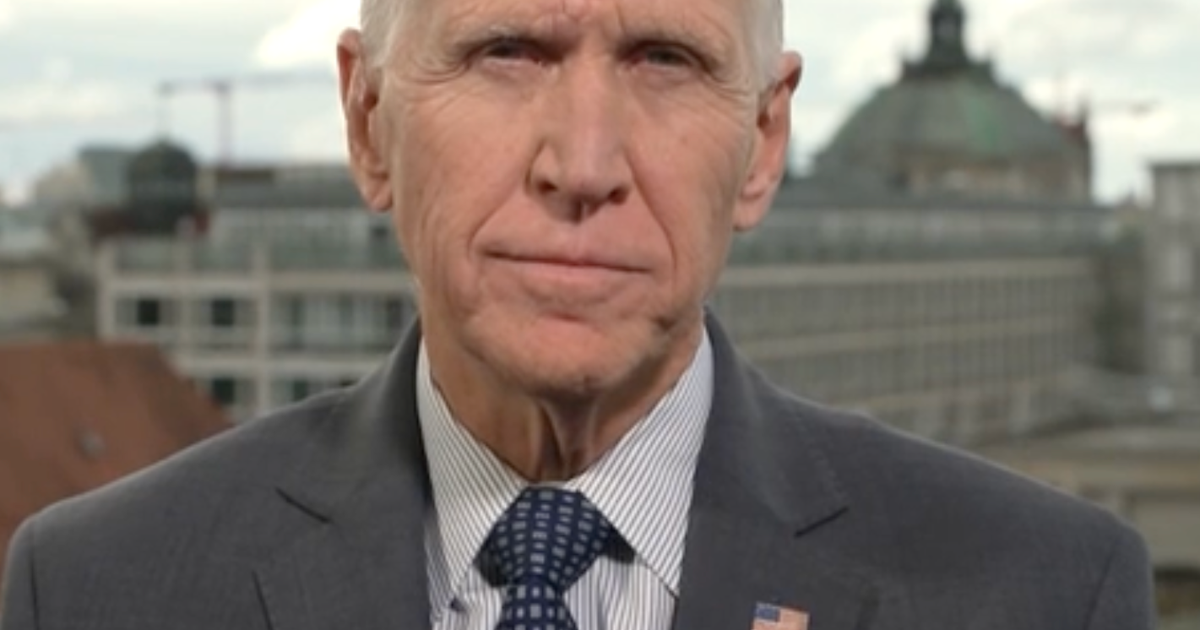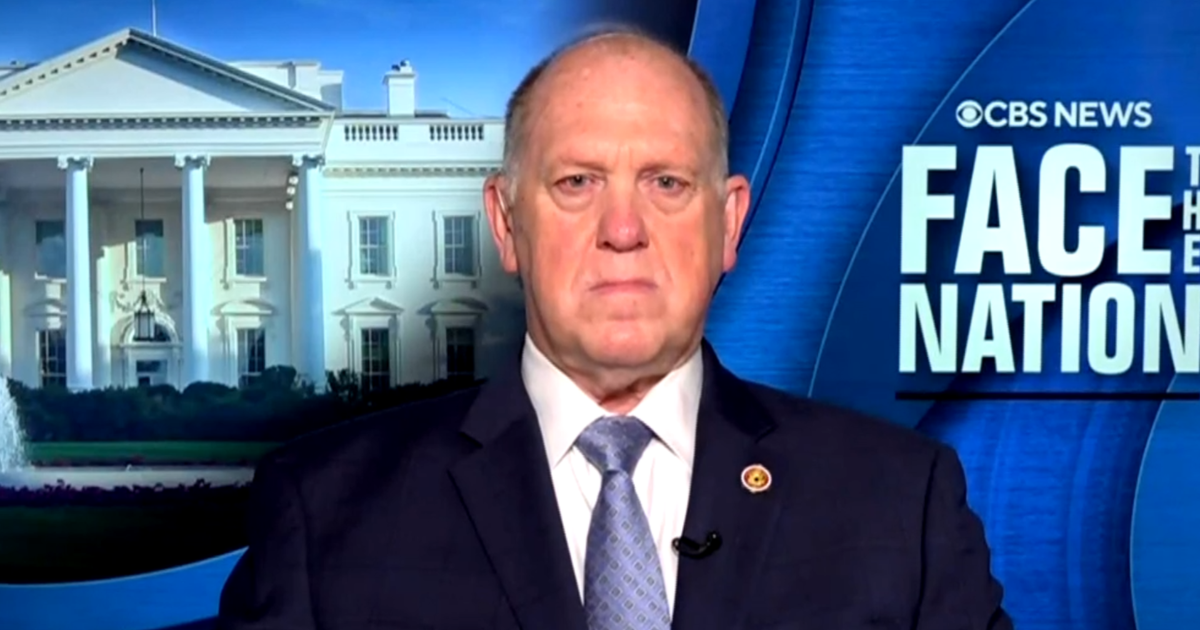Transcript: FEMA administrator Deanne Criswell on "Face the Nation," August 20, 2023
The following is a transcript of an interview with FEMA administrator Deanne Criswell that aired on "Face the Nation" on August 20, 2023.
MARGARET BRENNAN: For a closer look at how the federal government is assisting Hawaii and preparing for the next disaster, we're joined by FEMA Administrator Deanne Criswell, good morning to you.
DEANNE CRISWELL: Good morning, Margaret.
MARGARET BRENNAN: The President told Americans that he has put FEMA on standby to deal with any impact from Hurricane Hilary. What are you preparing for at this point?
CRISWELL: Margaret, it's a really good question because Hurricane Hilary is going to produce some really significant impacts to Southern California. We have a team that is embedded in California in the state EOC. And we also have several staff, one of our offices is there in California. So we had a lot of staff already on the ground. We are moving in some additional resources to make sure that we can support anything that California might need. But they're a very capable state as well and they have a lot of resources. And so if it does exceed what their capability is, we're going to have search- additional search and rescue teams, commodities on hand to be able to go in and support anything that they might ask for.
MARGARET BRENNAN: Well, I know you will be traveling with President Biden to Hawaii. What is it that you think he needs to see firsthand?
CRISWELL: You know, I think the biggest thing that the President needs to see is just the actual impact, right? It really feels different when you're on the ground and can see the total devastation of Lahaina town. And then he'll talk to some of the families that have been impacted by this and hear their stories. And what he's going to be able to do is he's really going to be able to, one, bring hope to this community, but also reassure him- reassure them that the federal government is there. He has directed them to bring the resources they need to help them as they begin to start their recovery and their rebuilding process. And do it in a way that they want us to do- help them with, right? This is their town, and we want to be able to support their vision for what Lahaina town rebuilds to look like.
MARGARET BRENNAN: Well, I know federal investigators are now on the ground from ATF to assist with the probe into how this wildfire started. The governor of Hawaii has said many times that he believes that global warming is really the cause of what happened here. Now there's scrutiny of human decision making too. Does his conclusion about global warming match the facts you've seen?
CRISWELL: You know, I think what I would say is that we are seeing, right, a significant increase in the severity of the types of events that we're experiencing, the severe weather events that are fueled by these extreme winds, which is what we saw here, right, records, decades of droughts, dry conditions, and then these winds. And so when all of these different climate related events come together, you know, it produces these catastrophic type events. You know, the Governor has ordered an assessment of this entire situation. And I would defer to you and the other officials that will be doing the investigation to really better understand what the overall cause was.
MARGARET BRENNAN: But if it makes natural disasters that much more intense, that- that ends up on your desk, right? So do you think that FEMA needs to be doing more to anticipate some of these worst case scenarios and decisions by local officials that make these things sometimes even more impactful?
CRISWELL: Margaret, I think, you know, threats we're seeing today are very different than what we saw five to 10 years ago, right? They are more intense, they are more complex. And so we do need to make sure that we're working with all of our communities to understand what the risks are going to continue to look like as we go into the next five or 10 years. And so we are working very hard with all of our local and state officials, to better anticipate and understand what the risk landscape is going to look like, what types of mitigation measures they can put in place to help reduce the impacts of these risks, and help communities with their preparedness plans and help individuals make sure they understand what the risks are going to be. You know, and thanks to the investments through the bipartisan infrastructure law, we have been given additional funding to really go into these communities and help them anticipate and put mitigation and projects in place to reduce the impacts that we're seeing from these severe weather events.
MARGARET BRENNAN: So, should there be a national standard, for example, on when to activate a siren?
CRISWELL: I think that's going to be something that's up to each individual community because sirens are used for a variety of things. I think the most important thing is that communities use the tools that they have to understand how they're going to prepare and warn individuals and they put those plans in place.
MARGARET BRENNAN: The cost of this is going to be a conversation here in Washington, as you know. You testified before Congress back in July that FEMA's disaster funds would be depleted by late August. That comes right in that Atlantic hurricane season time period. FEMA officials said on Friday to reporters that the agency has sufficient resources to meet the immediate life saving operations. Those things seem contradictory. How close are you to depleting this disaster fund?
CRISWELL: Yeah, we're watching our disaster relief fund very closely. And the projections that we put out there, the analysis that we do, takes into account the response to a major event like we are responding to in Maui, or that we will respond to potentially in California. Our estimates do still say that we may have a depletion of our fund now. It's pushed into the middle of September. And as we get closer to that, I mean, this is a day by day monitoring of the situation, we will start to move some of our recovery projects and delay them until the next fiscal year. So we can assure that we have enough funding to support any responses to do life saving, life sustaining needs for any of these systems that are developing, whether it's California or what we're seeing in the Atlantic.
MARGARET BRENNAN: Congress doesn't come back till after Labor Day to authorize new funding. So can you say at this point that what you have in your hands won't impact operations?
CRISWELL: It will not impact response, because we will push recovery into the next fiscal year to ensure that we have enough funding to support any responses through the end of this fiscal year.
MARGARET BRENNAN: Okay. So is $12 billion, which is what President Biden is asking Congress for, is that going to be enough, given what you were seeing happen?
CRISWELL: Yeah, the $12 billion was going to be able to cover some of the immediate needs that we were going to need to get through this fiscal year. As we're continuing to see the increase in these severe weather events, that dollar amount may need to go up as we go into next fiscal year, and what we're going to need to do to be able to continue to respond to the increased number of events that are happening across the nation.
MARGARET BRENNAN: Administrator Criswell, thank you for your time and good luck.
CRISWELL: Thank you, Margaret.



